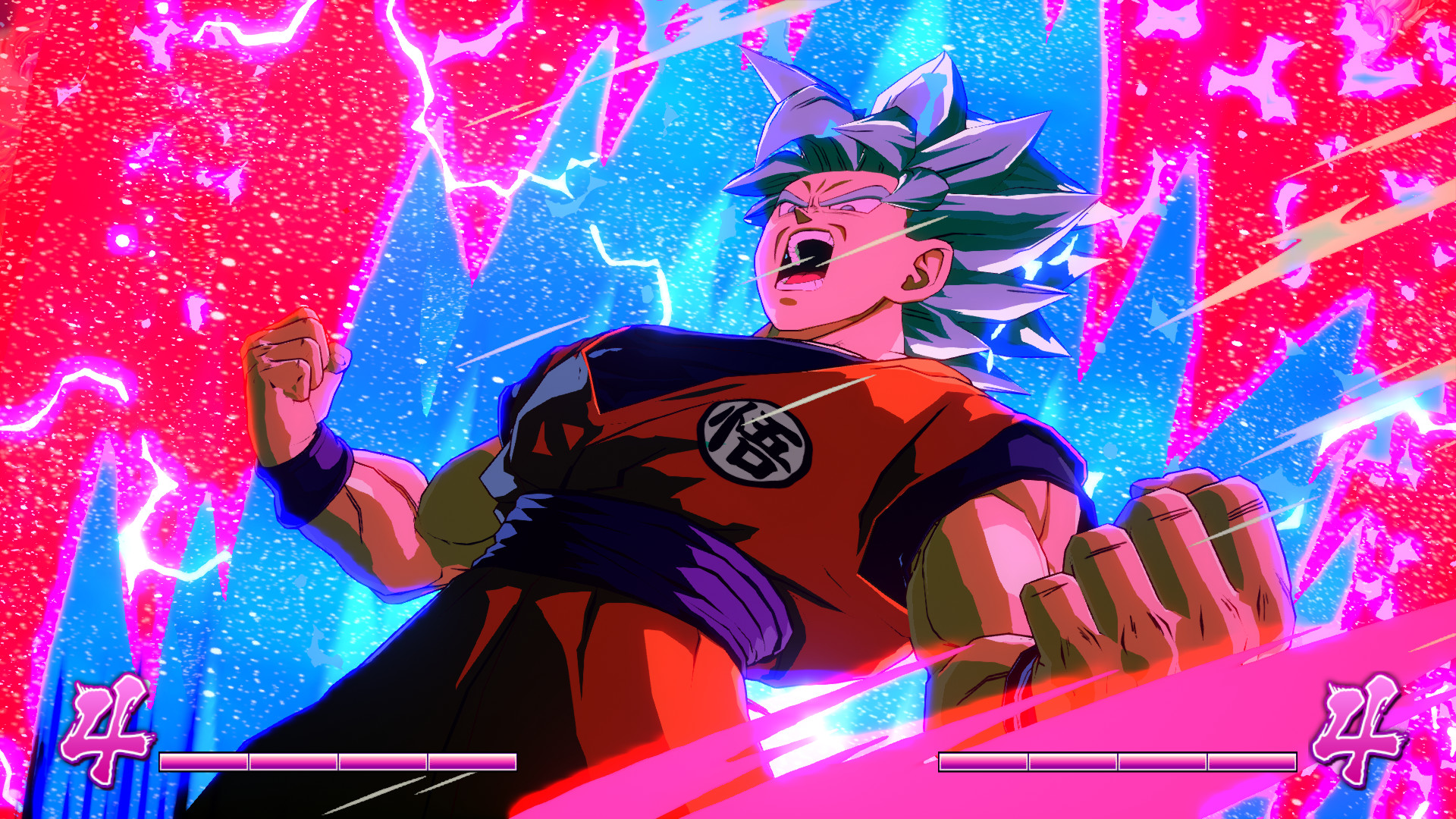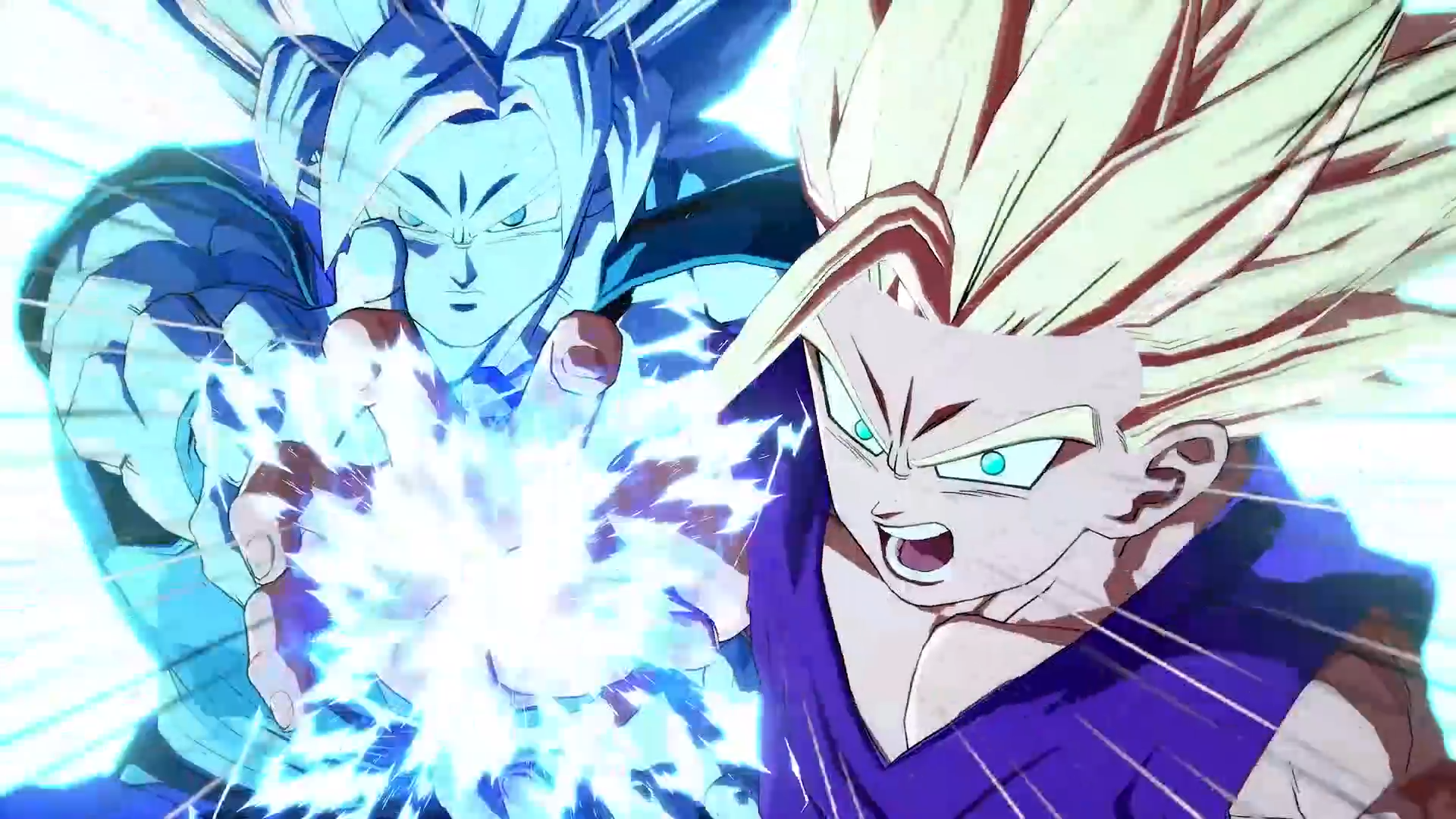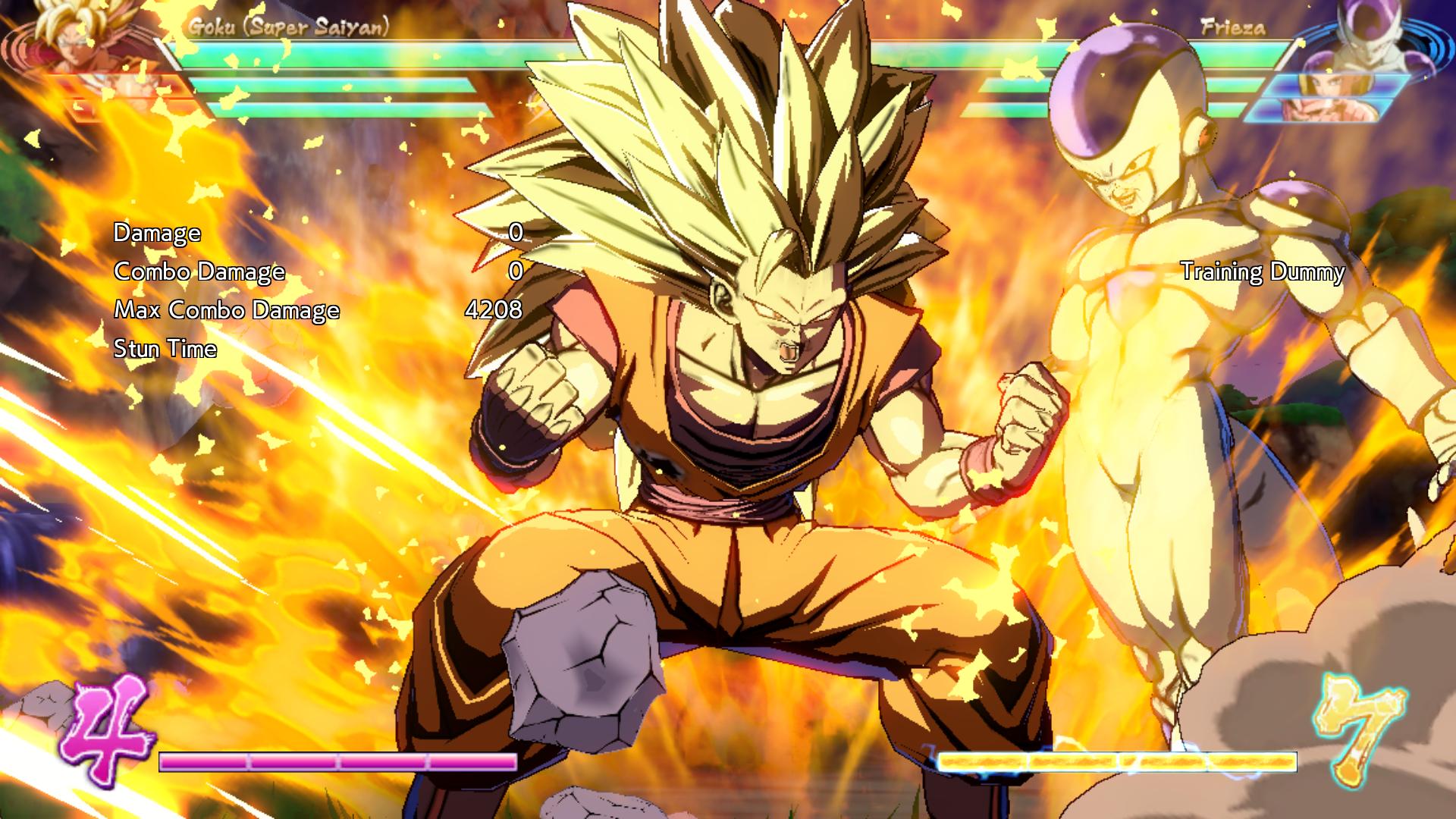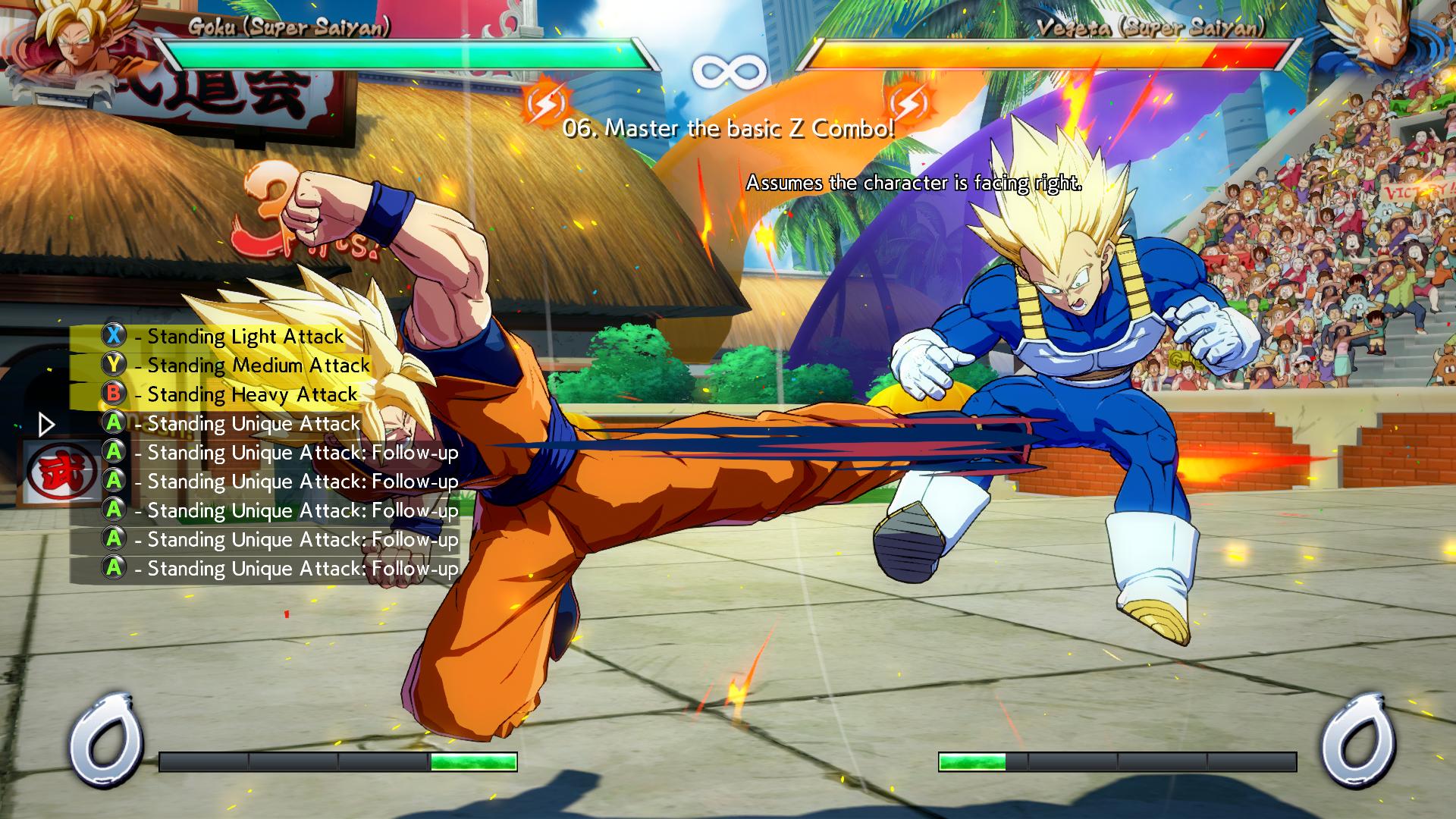How Dragon Ball FighterZ took the fighting community by storm
Drawing new players, veteran fighters, and Dragon Ball fans alike, the excitement has grown to a fever pitch.

It’s been a long time since a fighting game has caused as much excitement as Dragon Ball FighterZ. Billed as the first competitive Dragon Ball fighting game, its bombastic 3v3 combat has captured the imagination of everyone from the Dragon Ball fan whose never thrown a Hadouken before, to Evo champions looking for their next challenge.
When you consider that several big name fighters in the last year or so have failed to capture the casual crowd or have been mired in controversy, it’s a minor miracle that the excitement for Dragon Ball FighterZ has not dwindled since its reveal back at E3 2017. As a new crop of players is set to join the fighting game community off the back of DBFZ, I’ve chatted to a handful of community members about the hype surrounding the game, its potential to positively impact the fighting game community (FGC) and how to make this new blood stick around.
While most of the hype surrounding Dragon Ball FighterZ comes from the overwhelming popularity of the license, it has grown to a fever pitch in the FGC due to the prestige associated with its developer, Arc System Works. There have been plenty of Dragon Ball fighting games—with Super Dragon Ball Z being developed by ARIKA, the studio of Street Fighter II designer Akira Nishitani—but Dragon Ball FighterZ is the first fighter developed with the competitive crowd in mind. With Arc System Works’ glowing track record with Guilty Gear and BlazBlue, they seem the perfect people for translating Dragon Ball’s over-the-top action into a proper competitive fighter.

Competitive edge
The vast majority of the FGC is massive on Dragon Ball.
Esports commentator Ryan “Ketchup” Neal
According to three-time Evo champion Carl “PerfectLegend” White, the FGC had “been waiting for a [truly] competitive Dragon Ball fighting game for a very long time,” so the reveal of Dragon Ball FighterZ, with Arc System Works as its developer, was as if the community’s prayers had been answered. Rather than being localized within the anime fighter community, the excitement for Dragon Ball FighterZ stretches across every sub-group within the wider FGC.
“The vast majority of the FGC is massive on Dragon Ball” says veteran commentator Ryan “Ketchup” Neal, with its place as both a tag and anime fighter earning it extra kudos among those communities. With its announcement also coming after continued unease surrounding the tag fighter king, Marvel vs. Capcom, Dragon Ball FighterZ raised the spirits of the FGC. For Derek “Nakkiel” Bruscas, a top anime fighter player, DBFZ has had him making “new contacts/friends with people who I very likely never would have spoken with otherwise”, showing the game’s potential to bring together players across the various niches within the FGC. Factor in the influx of casual players, and people coming from the Dragon Ball Xenoverse community—the other major Dragon Ball game on the market at the moment—and the FGC is set to grow even larger and more interconnected.

And even if this vision of a more united community does not come to pass, there will be a guaranteed boost in spectators and competitors, thanks to DBFZ. It is already the most popular game at Combo Breaker (one of the FGC’s major summer tournaments), its Twitch viewership during the open beta was the highest seen for a fighting game outside of Evo and it could find itself alongside Street Fighter V and Super Smash Bros. Melee within the “top three biggest turnouts for every major event this year”, reckons Alex Jebailey, head TO of Community Effort Orlando. Outside of tentpole events, players have taken the initiative by planning tournament circuits, like Brucas’ local community in the Pacific Northwest creating a special “Budokai League”, with its winner being flown out to a US major of their choice.
Grassroots endeavor
Dragon Ball FighterZ will need continued developer support if it hopes to rival the likes of Street Fighter V.
With players coming from different communities to compete, Neal imagines there will be plenty of excitement coming from seeing if “particular games will spawn a consistent amount of successful players that came from them.” Expect some fierce rivalries and tense exhibition matches once Dragon Ball FighterZ gathers steam.
Keep up to date with the most important stories and the best deals, as picked by the PC Gamer team.
Grassroots support can only go so far though; Dragon Ball FighterZ will need continued developer support if it hopes to rival the likes of Street Fighter V. A character pass has already been announced, adding eight new characters (come on Master Roshi and Toppo), but there’s been no news on an official tournament circuit yet. Bandai Namco is no stranger to running events like the Tekken World Tour, but it may pay to let DBFZ build a faithful audience before trying to compete with the Capcom Pro Tour.
“I'd like this game to have time to grow organically within the community” says Jebailey, as opposed to it being pushed as an esport from the very start. While the competitive audience have been in mind, Dragon Ball FighterZ has not been built with esports at its core—a refreshing change compared to other recent fighting games. So it may pay for Dragon Ball FighterZ to remain as a grassroots endeavour in the short term, while a wave of new players get used to its combat systems.

Beginner? No problem. Hit the ground obliterating planets with our 6 tips for getting started in Dragon Ball FighterZ.
And it's this surge of interest from players who aren’t embedded in the FGC that is Dragon Ball FighterZ’s biggest strength. It has broken the record for the most popular fighting game launch on PC, with over 43,000 players playing on launch day, beating out the previous recorder holder Tekken 7 by well over 30,000 people. Should Dragon Ball FighterZ manage to retain half of those numbers, it will be a game changer. The FGC is determined to keep these newbies around, as there is already a glut of beginner guides, videos and primers to get you up to speed. Bruscas has started his own tutorial series, White has a dedicated DBFZ Discord for those looking to play and Neal and his twin brother are streaming their own path to mastery over on their Twitch channel.
“There's going to be plenty of ways a newcomer can learn” says Neal, but the most important lesson will be leaving “whatever ego exists from other games at the door.” Champions can come from any source, so don’t overlook anyone in this exciting new world of screaming, spiky hair and energy beams.

With Street Fighter V: Arcade Edition out now, SoulCalibur VI on the way and the line-up for Evo 2018 being announced in just over a week’s time, Dragon Ball FighterZ comes at the best time if you want to get into fighting games. Its relative accessibility compared to other fighters makes it a great place to start, with it teaching you fundamental skills that can be applied to other fighters. Plus, its shared DNA with both anime and tag fighters will make the transition to those subgenres easier, should you be interested.
As for the wider picture, the FGC now has “crossovers [with] the wrestling world, lots of other celebrity avenues and cross promotions” says Jebailey, with the recent Super Saiyan Showdown between Dragon Ball voice actors Sean Schemmel and Christopher Sabat generating huge interest from people outside of the scene. The combination of outside interest, a willingness to nurture new players and support from both its developers and the grassroots community, Dragon Ball FighterZ has every chance to have the FGC stand toe-to-toe with its esports brethren.

